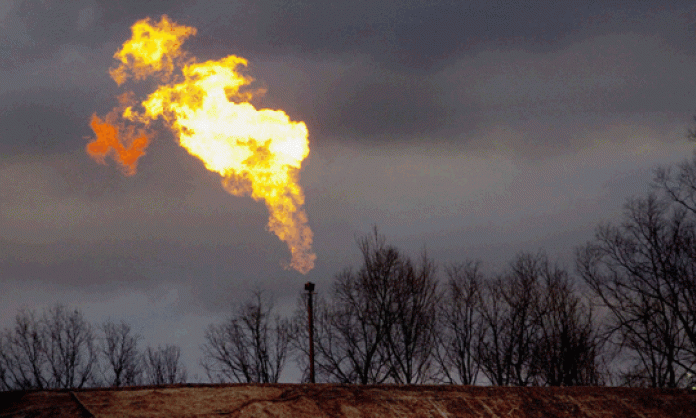Who would have thought that the environmental disaster of hydraulic fracturing (“fracking”) could get any worse?
The cheap, high yield method of natural gas extraction is already on record for poisoning public water supplies (in some cases rendering them flammable), causing earthquakes, creating acid rain and consuming huge amounts of water and dangerous chemicals, most of which are left in the ground afterwards.
To add to that list, a damning new study by gas industry consultant Touché Howard has revealed that previously collected data for methane emissions released at fracking sites could be underestimating the volume of the gas released “by factors of three to five”.
Methane is a powerful greenhouse gas – 72 times more powerful than carbon dioxide in the first two decades after its release, according to the Environmental Defense Fund – and a major contributor to global warming.
The main data called into question by Howard are those collected during a study by University of Texas scientists in 2013. Funding for the study came from a long list of energy companies, including Chevron and subsidiaries of Shell and ExxonMobil.
The results of that study, which measured methane emissions at 190 different onshore natural gas sites in the United States, suggested that some methane emissions – specifically wellhead emissions – were lower than previous estimates, signalling that new industry regulations were working. This was particularly good news for gas companies trying desperately to hose down environmental concerns over fracking.
Unfortunately for those companies, Howard has identified a significant fault in the measurement device used in that study, the Bacharach Hi-Flow Sampler (BHFS). He argues that due to a sensor failure which occurs during high emission observations, the recorded emission rates could be significantly underestimated. Before the corporate damage control squads kick into gear, they might want to take note that Howard just happens to hold the patent for some of the technology used in the BHFS. Touché.
Scientists and environmentalists have been warning about the perilous consequences of fracking since the 1980s. The method is responsible for radically transforming the US energy sector in recent years, and now oil and gas companies internationally, including in Australia, are turning to fracking.
However, the environmental carnage it leaves in its wake is now so obvious that no amount of shiny corporate PR can hide it.





